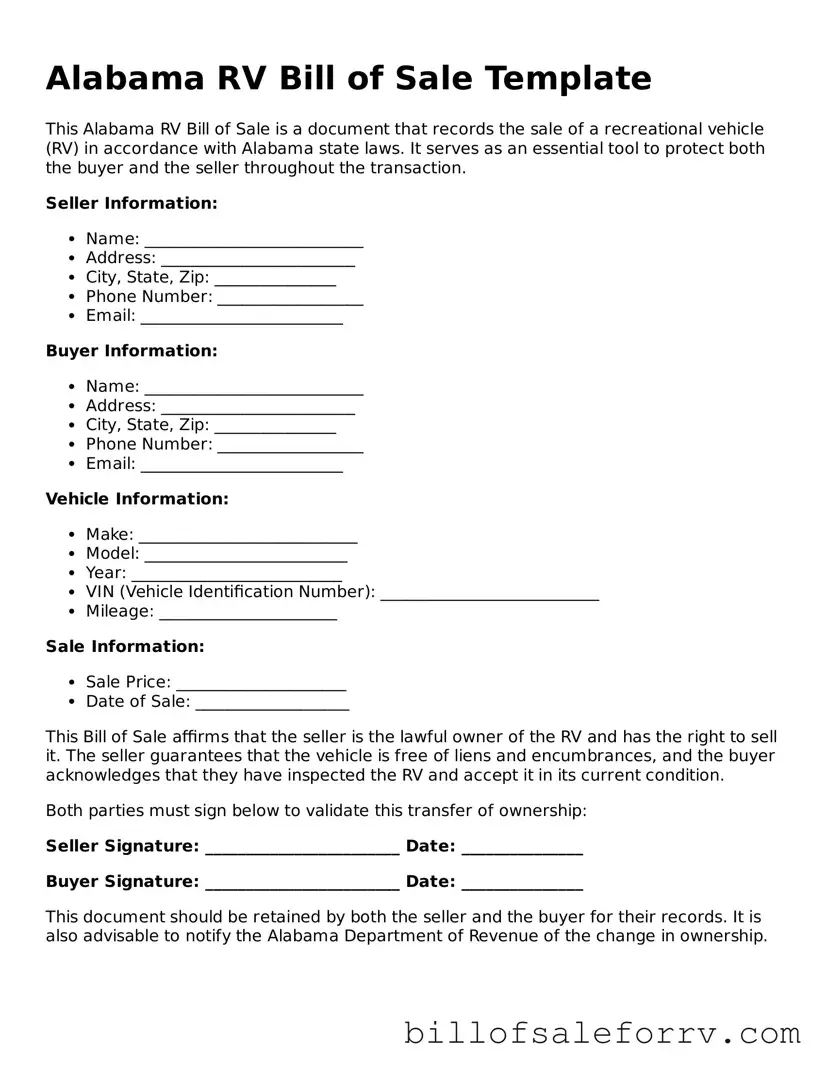Alabama RV Bill of Sale Template
The Alabama RV Bill of Sale form is a legal document that records the transfer of ownership of a recreational vehicle in the state of Alabama. This form serves as proof of the transaction between the seller and the buyer, detailing essential information about the RV and the parties involved. Understanding its components and requirements is crucial for ensuring a smooth transfer process.
Launch Editor Here

Alabama RV Bill of Sale Template
Launch Editor Here
Complete the form and get on with your day
Edit and complete RV Bill of Sale online, all in minutes.
Launch Editor Here
or
⇩ RV Bill of Sale File
